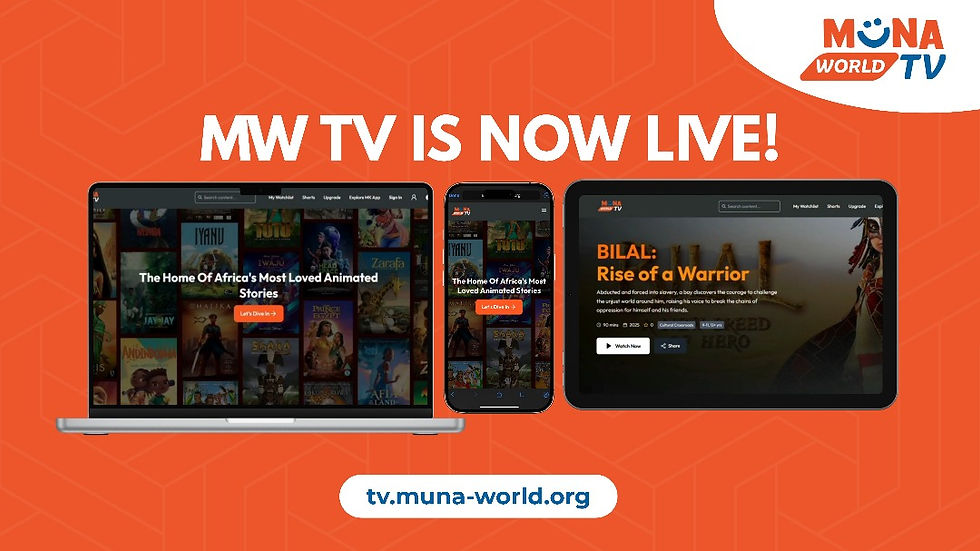Exploring the State of Children's Literature in Nigeria
- Muna Kalati

- Apr 18, 2024
- 2 min read
Updated: Feb 6

In a country rich in culture and diversity, the state of children's literature in Nigeria showcases creativity, growth and opportunity. However, alongside these positive aspects, there are also challenges and areas for improvement that warrant discussion. A recent report, titled "Introduction to the Children’s Book Industry in Nigeria," offers a comprehensive exploration of this multifaceted landscape, shedding light on its evolution, accessibility, and impact. Understanding the Landscape The report paints a vivid picture of the Nigerian children's book industry, tracing its journey from humble beginnings to remarkable growth. Since Nigeria's independence in 1960, the industry has experienced a surge in production and popularity, showcasing an impressive array of authors, illustrators, and publishers dedicated to crafting captivating narratives for young readers. Through research and analysis, the report shines a spotlight on the influential figures such as Chinua Achebe, Atinuke Olumide, Ifeoma Onyefulu, Cyprian Ekwensi and Chimanda Ngozi Adichie who are shaping the industry's trajectory, highlighting their invaluable contributions to Nigeria's literary landscape. While this growth is commendable, it's important to acknowledge the challenges that persist, such as limited representation and access for marginalized communities. The country has over 515 languages and over 373 dialects spoken by different ethnic groups. This poses a challenge for producing and distributing books that cater to the linguistic needs and preferences of all children.
Accessibility and Impact One of the report's key revelations is the increasing availability and accessibility of diverse children's books in Nigeria. From bookstores to libraries and educational institutions, a myriad of distribution channels ensure that children have access to a wealth of literary resources. However, there are still barriers to overcome, including affordability and distribution challenges in remote areas. Children's literature undoubtedly plays a crucial role in educational development and the promotion of a robust reading culture among Nigerian youth. There is a need for greater emphasis on representation and inclusion to ensure that all children see themselves reflected in the stories they read.
Data-driven Insights Data lies at the heart of the report, with findings gathered through interviews, field connections and a comprehensive children's book database developed specifically for Nigeria. This approach provides readers with an understanding of the industry's nuances, challenges, and opportunities. Moreover, the report is part of a broader research initiative spanning eight African countries (Nigeria, Ghana, Senegal, Liberia, Guinea Conakry, Gambia, Benin and Cote D’Ivoire), supported by the Google News Initiative. By shedding light on the state of children's literature across the continent, this initiative aims to enrich scholarly discourse and drive positive change.
As the narrative unfolds, there's no better moment to explore Nigerian children's literature. Whether you're a scholar, publisher, educator, or an avid reader with a passion for storytelling, this report offers a wealth of insights waiting to be discovered. It's important to not only celebrate the successes of the industry but also to actively address its shortcomings and work towards a more inclusive and equitable future. We cordially invite you to join us on 30th April 2024 at 10:00 AM GMT for the unveiling of this groundbreaking report. Be a part of the conversation surrounding the future of children's literature in Nigeria. Register here




Comments